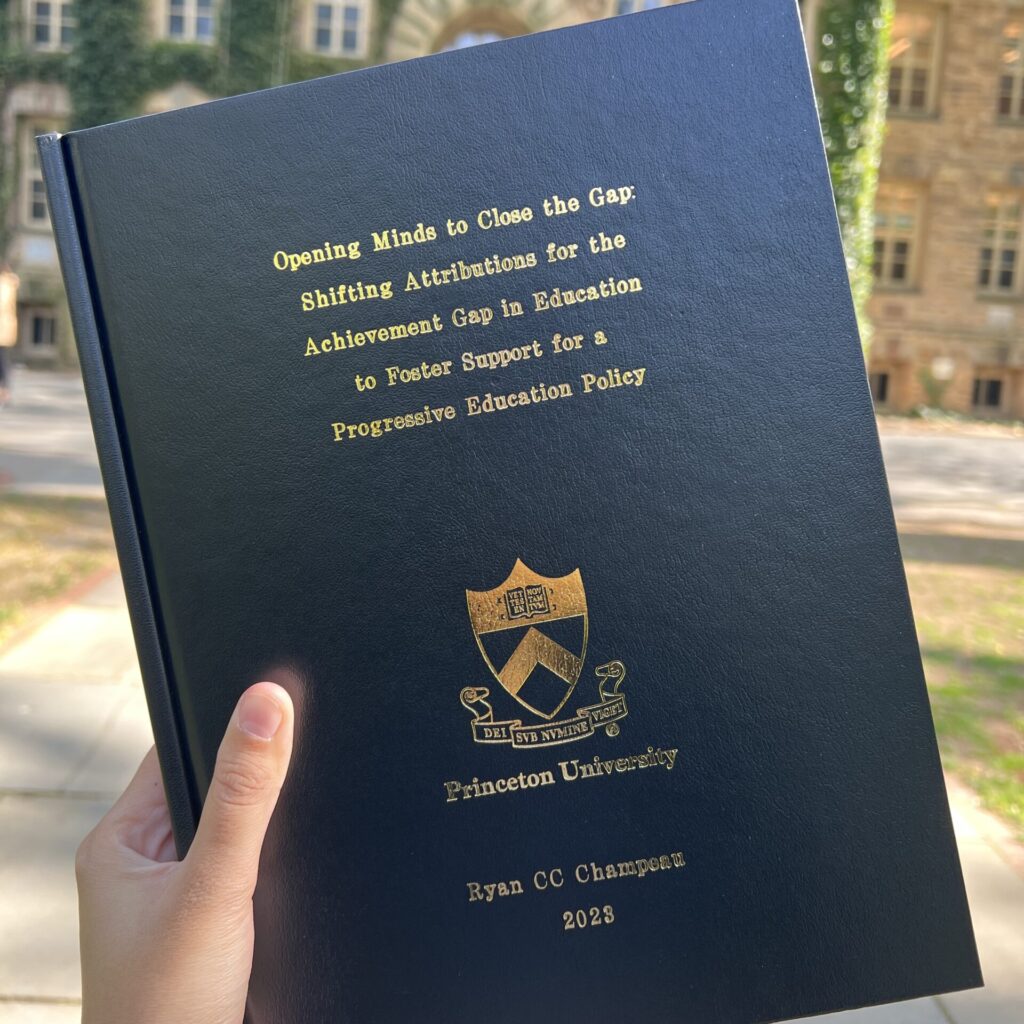
My final senior thesis!
I’ve always loved reading through senior thesis titles and thinking “Wow, that’s clever,” “That’s genius,” “I wonder how they came up with that.” The senior thesis, which many seniors refer to as a full-blown novel, is supposed to be a senior’s finest work and proudest possession. It looks impressive in its black book with gold font. It is 115 pages. It has fancy acknowledgments. As a first-year/sophomore, and even as a high schooler on tour, I was in awe at how seniors could create such a perfect paper. It isn’t until now that I know the answer: hard work.
A senior thesis only becomes “perfect” from mistakes and perseverance. I know that from experience. There are many steps of writing a senior thesis (check out my Senior Thesising 101 articles for advice on some of them) and each comes with its own challenges. I would like to walk through some of the obstacles that I faced and how they didn’t suddenly just disappear. I was able to rise above them only through many hours in the Coffee Club, many emails to my adviser, and most importantly, by never giving up.
Insignificant Results
This wasn’t the first challenge that I faced, but it was the one that worried me the most. For my thesis, I ran an experiment on 400+ participants. Let me stop right there, though. I know immediately you might think, how did I get so many participants? It wasn’t through luck or even intelligence. I sat in a gym for 50+ hours asking over and over and over again for gym attendees to take my survey. After the first day of collecting data, I went home and ran the code to see if the results were significant. This was my first mistake. When you are running an experiment, you should wait until the end of data collection to save yourself the stress, because results will most likely change. My results were initially insignificant and I was crushed. I emailed my advisers, my professors, and even my friends. I genuinely believed that my thesis was ruined. They reassured me that in the realm of the senior thesis, significance does not matter. It does not matter for the results. It does not matter for prizes. You cannot control the results of the experiment and you should not feel like you have to. After concluding weeks of data collection, I was happy that I did end up getting significant results. But, it taught me a lesson that significance isn’t significant. Even if you get insignificant results, the study is still important because this shows that the effect that you and other researchers may have expected, may not actually exist.
IRB and Ethics Approvals
Many students struggle with IRB approval. In order to administer a survey, experiment, or pretty much any sort of data collection with people or animals, students must receive IRB or IACUC approval. When I first submitted my IRB approval form in November, they asked for a few modifications. I was worried that this wasn’t normal, and that meant I was doing something wrong. I was not and it did not. I made the modifications and submitted the new version in December. I recommend submitting your application as early as possible. It was stressful to submit my modifications in December because I knew that I then couldn’t conduct my experiment until after break. Nonetheless, after a 3-month IRB process, I received approval in January!
Data Analysis
R you ready for this next one? I genuinely love coding in R, but I definitely do not love it when I get the same error hundreds of times and then a new error after running the same code that I ran hundreds of times. My R code ended up being over 5000 lines. It was not a quick regression or an effortless table. It took hundreds of hours, but it was not a struggle because of the amazing resources that we have on campus. For one, you can always talk to your adviser, your lab instructor, or any professors that are familiar with the coding language. Also, Stokes Library and the Data and Statistical Services are incredibly helpful. They have drop in hours and one-on-one appointments where they will help you with your code and your data analysis.
It’s the day before. You feel like you still have so much to do. Is your code right? Are your tables correctly aligned? Does the writing even make sense? The most important thing to do is trust yourself. This isn’t a thesis created from effortless perfection. It’s a book stemming from hard work, determination, and many great resources put together. Once you do the thesis yourself, you realize that your fate is in your hands and that your thesis can be whatever you want it to be. It may seem difficult, but with hard work and positivity, I promise that you can do it too.
— Ryan Champeau, Social Sciences Correspondent

